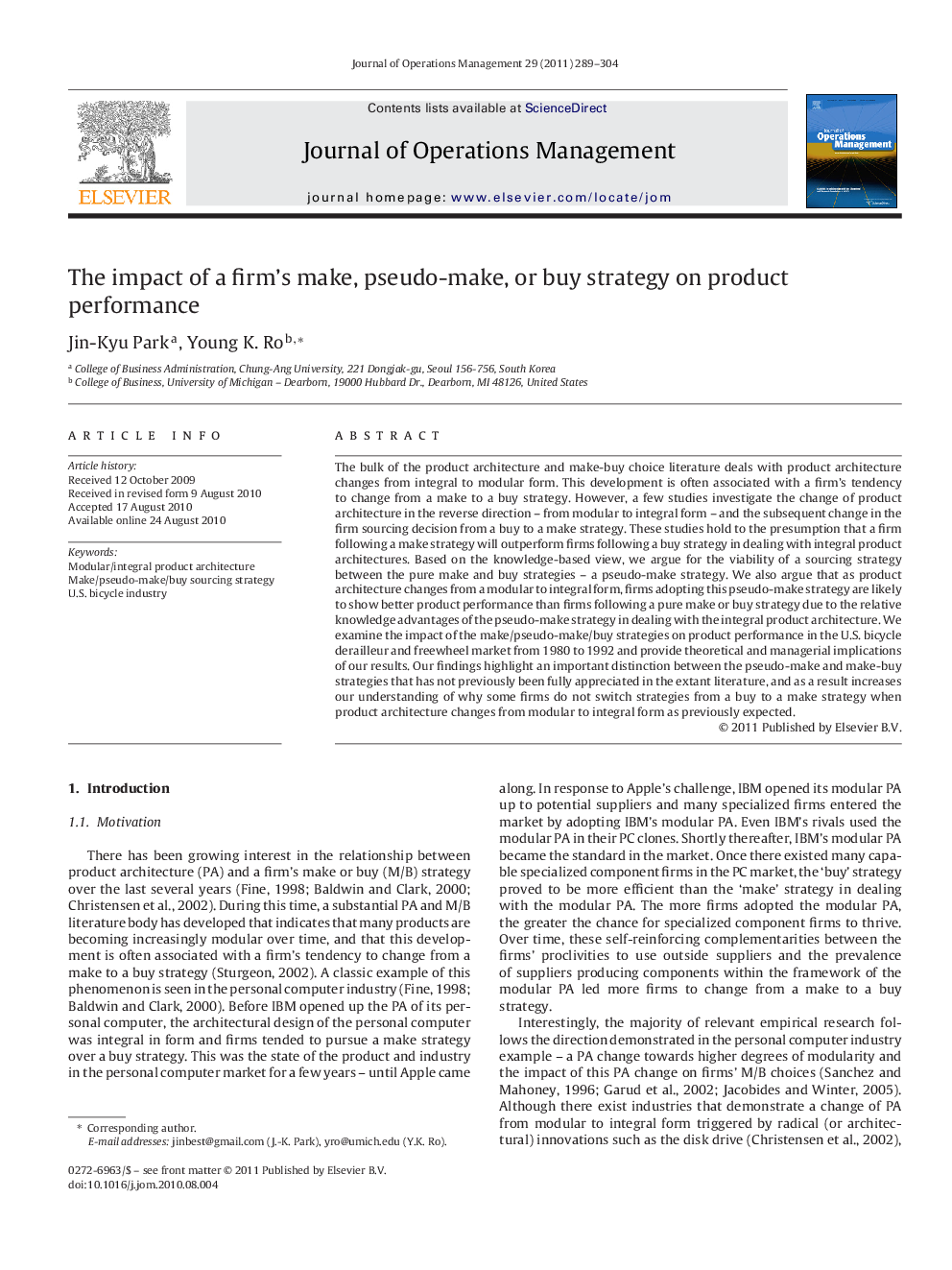| Article ID | Journal | Published Year | Pages | File Type |
|---|---|---|---|---|
| 1031917 | Journal of Operations Management | 2011 | 16 Pages |
The bulk of the product architecture and make-buy choice literature deals with product architecture changes from integral to modular form. This development is often associated with a firm's tendency to change from a make to a buy strategy. However, a few studies investigate the change of product architecture in the reverse direction – from modular to integral form – and the subsequent change in the firm sourcing decision from a buy to a make strategy. These studies hold to the presumption that a firm following a make strategy will outperform firms following a buy strategy in dealing with integral product architectures. Based on the knowledge-based view, we argue for the viability of a sourcing strategy between the pure make and buy strategies – a pseudo-make strategy. We also argue that as product architecture changes from a modular to integral form, firms adopting this pseudo-make strategy are likely to show better product performance than firms following a pure make or buy strategy due to the relative knowledge advantages of the pseudo-make strategy in dealing with the integral product architecture. We examine the impact of the make/pseudo-make/buy strategies on product performance in the U.S. bicycle derailleur and freewheel market from 1980 to 1992 and provide theoretical and managerial implications of our results. Our findings highlight an important distinction between the pseudo-make and make-buy strategies that has not previously been fully appreciated in the extant literature, and as a result increases our understanding of why some firms do not switch strategies from a buy to a make strategy when product architecture changes from modular to integral form as previously expected.
